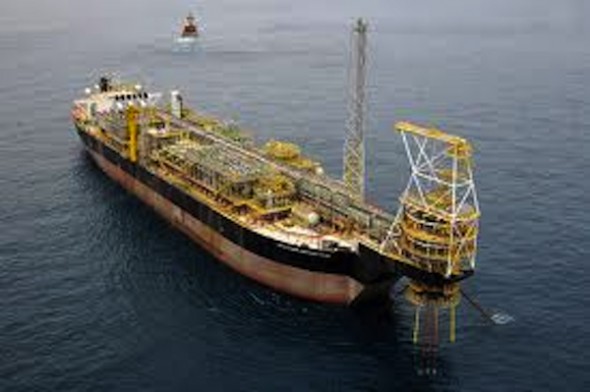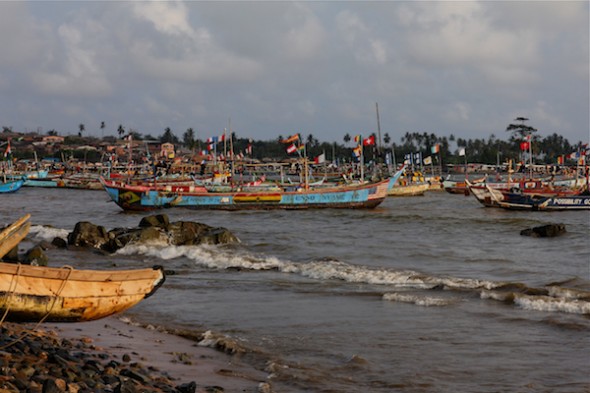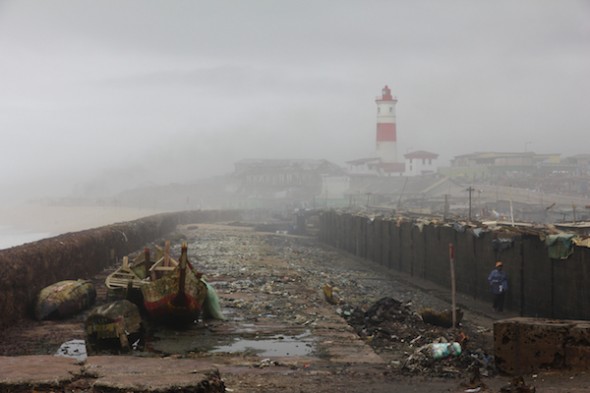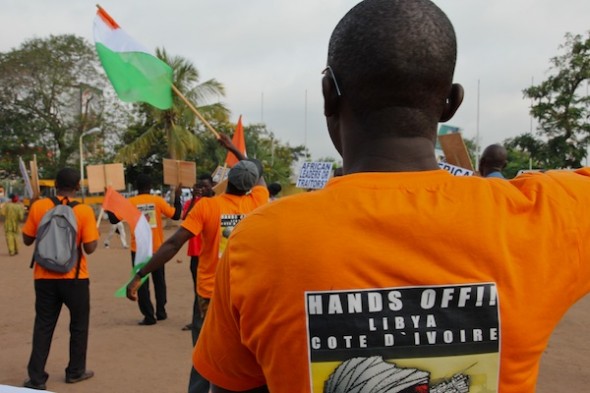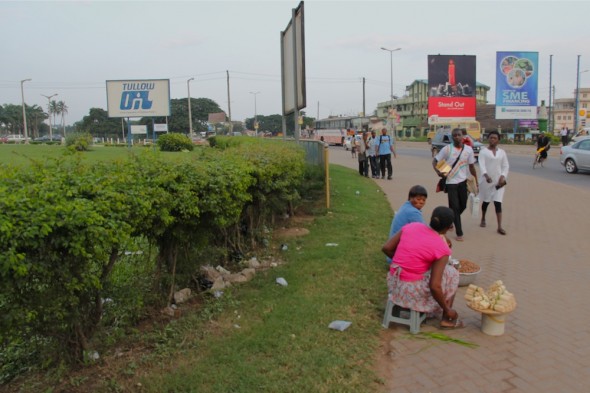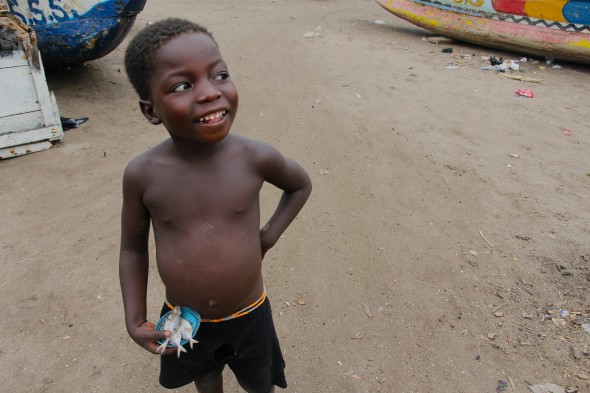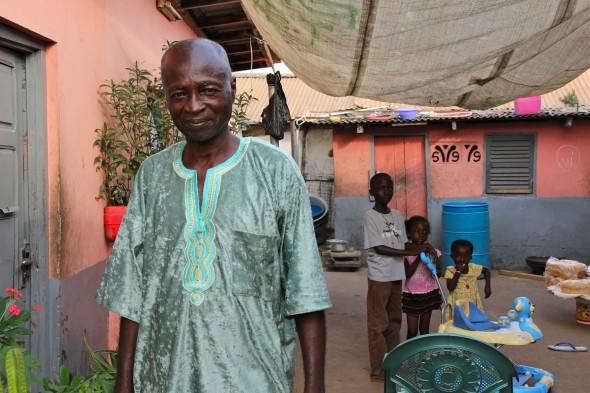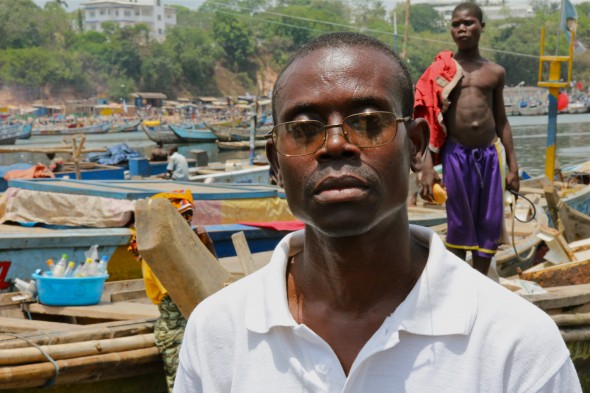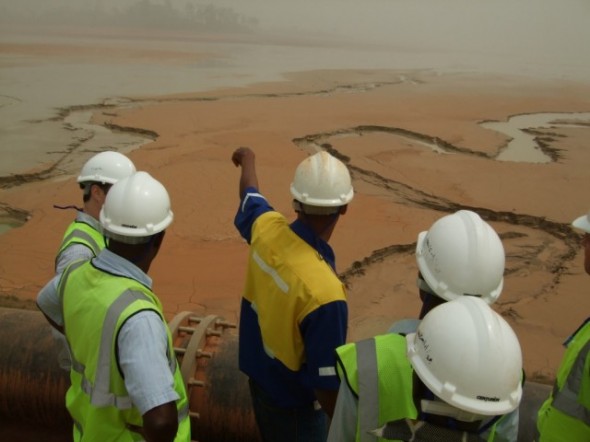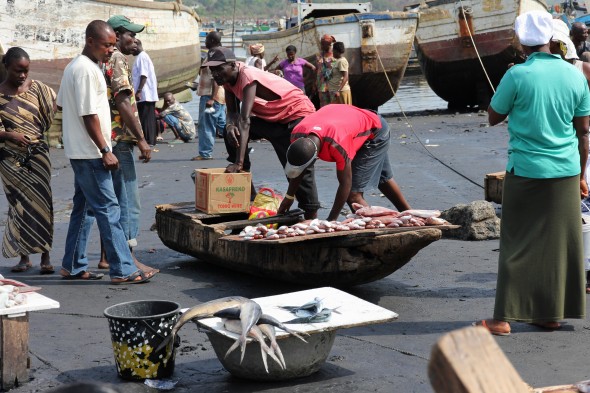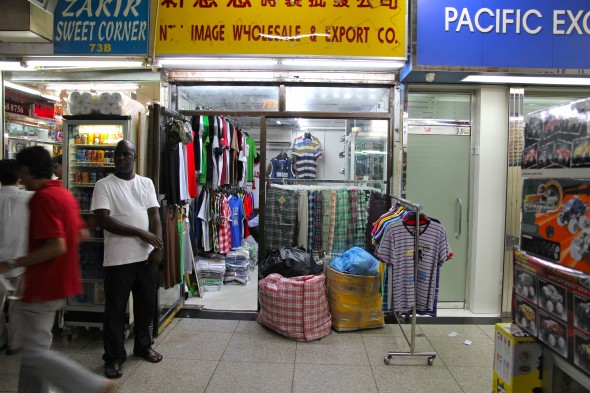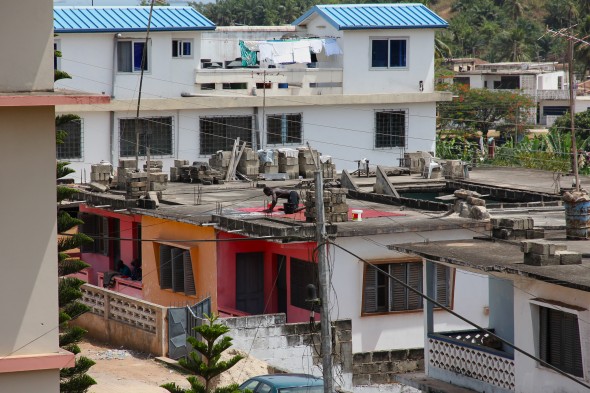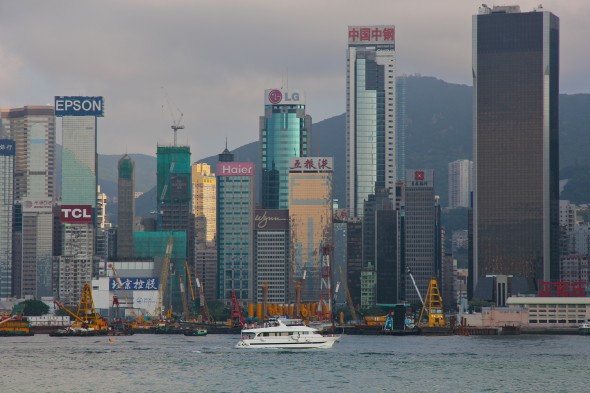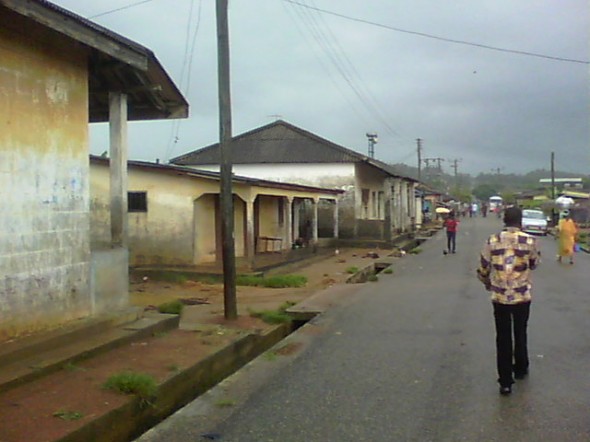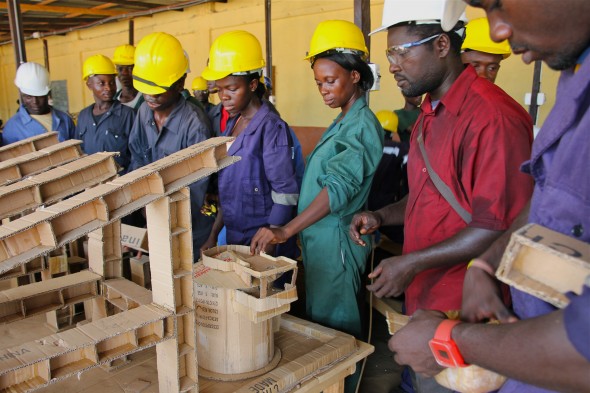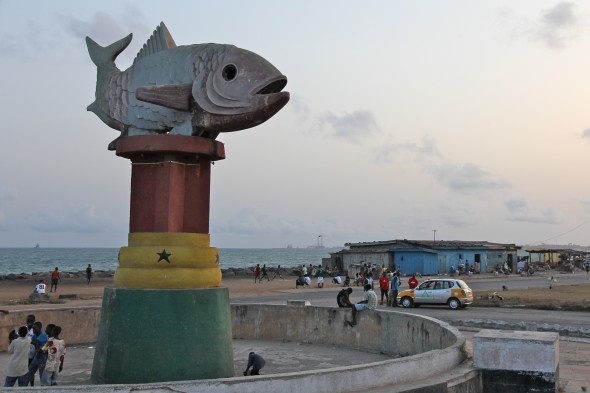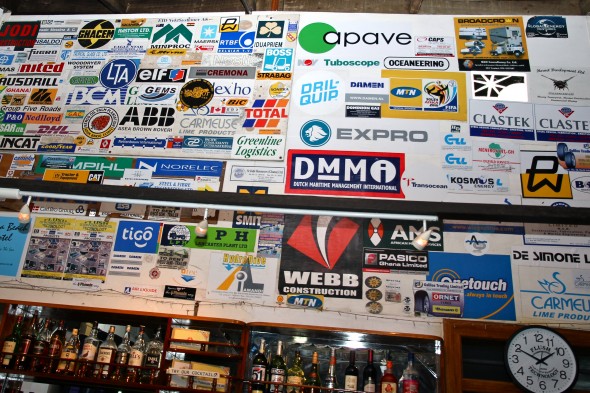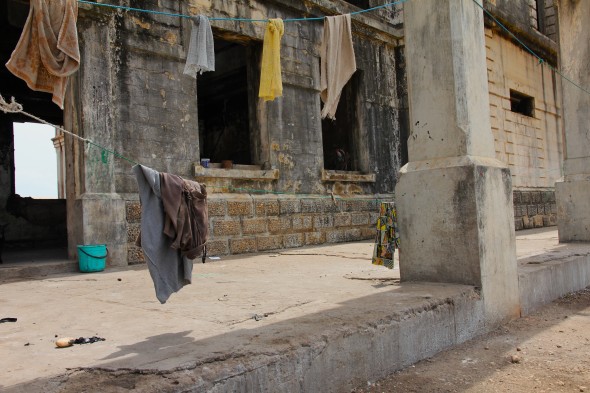Jubilee partners in the news
Tullow Oil and Anadarko have been in the news, both inside and outside Ghana. In Ghana, things are going well for the two companies. Tullow, most notably, appears to be moving towards development of its recent Tweneboa and Enyera discoveries (translation: more commercial oil production on the way).
Outside of Ghana it’s a different story. In Uganda, Tullow is caught up in a political scandal involving corruption allegations. The Ugandan government has blocked Tullow’s sale of some of its Ugandan holdings to Total and CNOOC, pending an investigation. Tullow categorically denies the allegations, but there’s no denying that Uganda’s oil adventure does not look to be off to a good start.
Gas flaring and Axim: an update…sort of
Last month I wrote about strange eye infections in Axim that some locals blamed on gas flaring. Axim, or Tired of Talk, I titled the post because local citizens were frustrated with talk that rarely seemed to get followed by action. When I visited Axim in August residents had been waiting several months for oil company officials to carry through on promises to send out a medical team for screenings.
An early morning in James Town
It’s a gray and damp early morning in James Town. The lighthouse in the mist makes me think of northern California.
Waiting for Kosmos…
Waiting for Kosmos. I wait endlessly and (so far) in vain for a meeting with someone I do not know. Does this sound familiar? If and when we meet, I will likely learn nothing. But then I would be able to say that Mr. X of Kosmos Energy assures me that all matters have been amicably resolved, which would make my reporting appear somehow more objective. A meaningless statement is better than no statement, or so goes the logic.
Libya, Gaddafi, oil: another view
On the African continent, a more nuanced appreciation of Gaddafi and the Libyan rebels.
While fighting continues across Libya, grisly details of the NATO-backed assault on Tripoli are beginning to emerge. At the same time the rush for Libya’s oil is on and it appears that the countries who provided early support for the rebels will have a competitive edge for new oil contracts (read The rush to grab the trophy is on! in Arab News for more details on likely winners and losers in the post-Gaddafi era).
Can Europeans pressure their oil companies to do better in Africa?
Chatham House has released a new study on the impact of oil companies on health and the environment in Africa. The study, prepared for the European Parliament, covers the problems associated with oil production in Africa and suggests what European citizens can do to affect change. There are a number of ways that Europeans (and Americans) can engage with their oil companies and governments to push for more effective regulation and better business practices. The article I’ve posted below, from IDN, reminds European readers that they need to take an active role in working for a better (cleaner, safer, more transparent) oil industry in Africa.
Small catch for small fry
Wandering around the old harbor at James Town on a gray and hazy day, I met this little fishmonger with a perfectly sized catch.
Axim, or Tired of Talk
I took a trip to Axim today. Axim is a town about an hour’s drive west of Takoradi. It’s a major fishing port, one of the largest in Ghana. There are 800 fishing canoes operating out of Axim and some of the big canoes have 20 person crews. So from Brewire to Apewosike, there are literally thousands of people fishing in the Axim area.
I met with Nana Kojo Eshun, the chief fisherman of Lower Axim. I wanted to talk to him because I’ve heard some stories from fishermen recently about health problems in Axim that some here blame on gas flaring in the Jubilee field.
Edlove Quarshie, R.I.P.
Ghana’s fishing community has lost a passionate defender.
Edlove Quarshie, fisherman, activist and officer in Ghana’s Line Hook Canoe Fishermen’s Association has passed away. I heard the terrible news today in Takoradi. I wanted to talk to Edlove about the new drilling operations and learned that he died in Accra a few days ago. There have been seven new oil discoveries in the Western Region in the past months; drilling is now moving full speed ahead at three wells. For the fishermen, this means more no-fishing zones and, possibly, more conflict.
Trouble in Ghana’s gold fields
Last week there were news reports of a standoff between the Yayaso community and personnel of the Ghana Police Service. The incident was triggered by the refusal of the community to move out of their ancestral homes to make way for Newmont Gold Ghana Limited to begin their Akyem Project. Under the watchful eyes of the Chief of Adausena, Nana Boni Abankro, Newmont Gold Ghana Limited was in the process of relocating the cemetery at Yayaso to a resettlement camp at Adausena when the people objected to the relocation. The said cemetery includes the Royal Mausoleum where past chiefs of the community have been laid to rest.
Ghana’s gold mining history is not a pretty one: exploitation, pillage and pollution are the trademarks of an industry that has brought great wealth to a few while wreaking havoc on local communities and ecosystems.
Welcome news for Ghana’s fisheries
The World Bank has announced a significant funding package (US$ 53.3. million) intended to support Ghana’s fisheries. Among other things, the funding will support efforts to reduce illegal fishing off the coast of Ghana and to improve sustainable management of the country’s fisheries. This is important news for Ghana’s fishing communities.
Oil and Beyond: Ghana looks to retool its economy
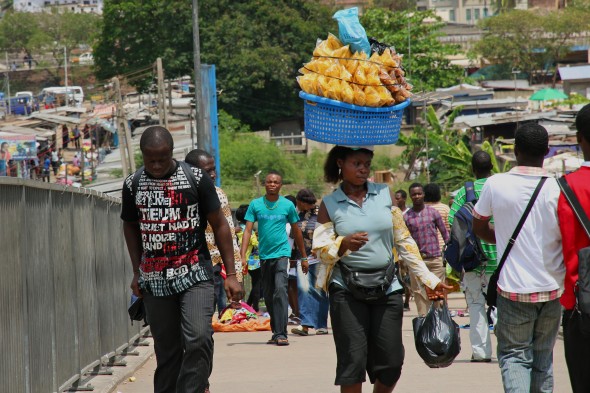
Accra. Will Ghana's oil wealth translate into improved lives for Ghanaians? Photo by Christiane Badgley
Now that Ghana has become a middle-income country, the West African nation is taking stock of the many challenges it faces, including uneven development. Authorities are consulting with experts at home and abroad on how to ensure that oil revenues benefit all Ghanaians in a sustainable manner.
Takoradi will always be home
Siddiq Fuseini grew up in Takoradi, went to school in Accra and for the past six years has been living in Hong Kong. “Takoradi will always be home,” he said, “and I’ll return. But not now.”
Oil is not enough: Africa needs industrial development
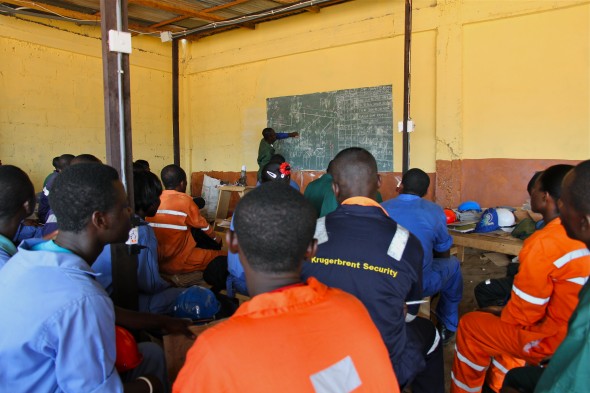
When industrial development arrives in Sekondi-Takoradi, there will be a trained workforce ready for employment. Photo by Christiane Badgley
This morning I came across an article in the Guardian, Africa must build industrial sector urgently, warns UN agency, and the timing could not be better. I’m in Guangzhou, China, marketplace for the world, and if you ever needed a reminder that manufacturing is what creates jobs and wealth and leads to real economic development, come here and look around.
Can Ghana benefit from Norway’s oil experience?
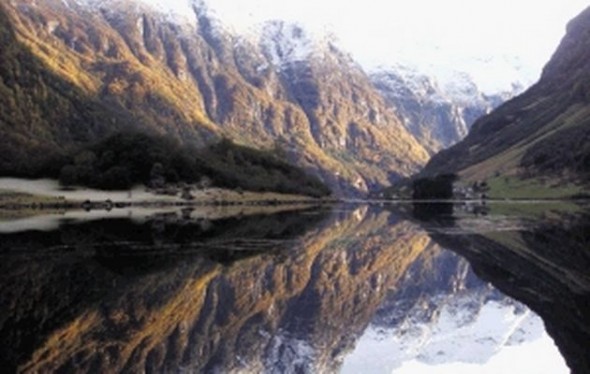
Iraqi-born geologist Farouk al-Kasim predicted Norway's big oil find and is one of the pioneers of the country's oil policy. Photo: Sunday Times, South Africa
There’s a lot of talk in Ghana about Norway, the country that has made oil work for its citizens. Ghana is looking to the Norwegian experience for insights into how best to manage its oil resources. The Norwegian Agency for Development Cooperation has an Oil for Development Program in Ghana that seeks to develop long-term institutional cooperation in the oil sector. Through this program, the Norwegian government is providing assistance in competence and capacity building within resource management, revenue management and environmental management.
Africa’s economy rebounds without jobs
What happens when an economy grows rapidly without generating jobs?
Yesterday I was talking about Ghana’s economy with a Ghanaian who is doing business in Hong Kong. On paper things are booming:
Ghana’s economic growth accelerated to an annual 23 percent in the first quarter as the West African nation began producing oil for export, the country’s statistics agency said….Expansion was led by a 162 percent jump in mining and quarrying, which includes the oil industry, while agriculture grew 39.2 percent. Ghana began production of oil from its offshore Jubilee field in December. Output is about 70,000 barrels a day and may climb to 120,000 next month, according to the field’s operator, London-based Tullow Oil Plc.
From Takoradi to Hong Kong…
I’m in Hong Kong and China for two weeks doing research. My first day here and I’ve already met someone from Takoradi and chatted about Ghana’s oil.
Small world. More to follow…
Jubilee’s oil…Bonyere’s gas: what’s going on?
Today I’m posting an article by Stephen Yeboah on the proposed Bonyere gas project. Yeboah, a Ghanaian development practitioner who focuses on the extractive industries, recently participated in a training program on oil and gas reporting funded by Revenue Watch Institute, Thomson Reuters Foundation and the International Institute of ICT Journalism (Penplusbytes).
First some background:
The Jubilee oil development project includes plans to pipe the gas released by the drilling to shore where it will be processed to generate electricity and eventually lead to further industrial development.
Oil jobs for all?
Will the oil industry bring jobs to Ghana’s Western Region? And when job opportunities arise will locals be competitive?
If Ebow Haizel-Ferguson has his way, the answer to both questions will be yes. Haizel-Ferguson is one of the founders of Sigma-Base Technical Services, a job training center in Sekondi-Takoradi. My latest video dispatch from Ghana features Haizel-Ferguson and Sigma-Base students. It is online at the Pulitzer Center: http://pulitzercenter.org/video/ghana-oil-industry-jobs
New video online!
The Center for Public Integrity and the Pulitzer Center have posted the first of my short video dispatches on Ghana’s new oil industry: http://www.iwatchnews.org/2011/06/10/4859/fishing-and-offshore-oil-industry-delicate-imbalance
There’s a dedicated “Oil City Stories” page at the Pulitzer Center and from there you can access articles and videos: http://pulitzercenter.org/projects/ghana-oil-city-hopes-challenges-takoradi
Please visit these pages and add comments, tweet, like, share, etc.! Increased traffic and comments help me convince funders to continue supporting this work. New videos will be out soon and we’re working on a longer film project. It’s crucial to keep up the momentum!
Thanks for your interest and support.
It’s been awhile…
Days turn into weeks and I haven’t posted a thing. I guess I’ve got those oil blues…
Well, that and I have been editing video and preparing an article for publication. If all goes as planned, new material should be online in the next few days. I’ve also been to London to interview Stuart Wheaton, Ghana Development Manager for Tullow Oil, and Romain Chancerel, Project Manager for the Global Initiative for West and Central Africa (GIWACAF). GIWACAF is a public-private partnership working to develop and enhance oil spill response capacity in the Gulf of Guinea region.
President Mills announces infrastructure development plans for Western Region
During a visit to Sekondi President Mills announced that 10% of Ghana’s oil revenues would not be enough for all the work that must be done in the Western Region. Those are words intended to please the chiefs of the Western Region who demanded that 10% of Ghana’s oil revenues to regional development. Their demand was thrown out of parliament and local leaders have vowed to make this an election issue.
Earmarking 10% of the country’s oil revenues for the Western Region is complicated: What happens when drilling begins in other regions and what precedent does this set for other industries, like mining? But no one can argue that the Western Region is not in need of massive infrastructure improvements. And, some say, the 10% demand provides Ghana’s leaders to consider the problem of resource-rich areas that have never fully benefited from their resources (in the gold mining sector, most notably).
Oil City Stories at the Pulitzer Center!

Sekondi-Takoradi, Ghana's "Oil City." The giant fish monument at the Sekondi beachfront roundabout is a testament to the importance of fishing for this town. It seems fitting that the fish appears to be gasping for breath as overfishing and now the oil industry take their toll on local livelihoods. Photo by Christiane Badgley
The Pulitzer Center on Crisis Reporting has launched a project page for Oil City Stories, my work in Ghana. Please visit the page, subscribe, like it on facebook and retweet! I need people who care about these issues to make their voices heard — getting the word out helps me secure the funding I need to continue this work.
I haven’t been posting much the past few days as I’m editing photos and videos. Starting in a few days the videos will go up on the websites of The Center for Public Integrity and The Pulitzer Center, my partners on the Ghana work.
With these videos, I give voice to people and concerns rarely heard in U.S./Western media coverage of the oil industry in Africa. We read about the oil industry in the business pages (or in articles focused on the business side of things) and then we read about MEND operations in the Niger Delta. We rarely hear anything about what happens between the signing of lucrative deals and the rebellions, yet if we want to understand (and avoid) the so-called “resource curse” this is where we need to focus our attention.
Between — it’s where things happen and it’s where I’m working. Stay tuned and please spread the word!
Gulf of Guinea: The new Wild West
Reuters ran a story several months ago on the key political risks of doing business in the Gulf of Guinea.
I posted the article then. The article has been updated and I’m putting it up once again. As I said when I originally posted this article, most coverage of the extractive industries (and cocoa, in the case of this article) is in the business pages and basically boils down to dollars and cents. What are the rewards, what are the risks?
The human side of the story is only of interest insofar as it impacts business and the investment climate. Ditto for the environment. What’s noteworthy here is that there is absolutely no mention of the the environmental risk of rapidly expanding drilling and mining. Kind of crazy when you consider that environmental mayhem will certainly lead to social unrest. Even from an investment perspective, one might think (wish?) that environmental concerns would be part of the risk assessment.
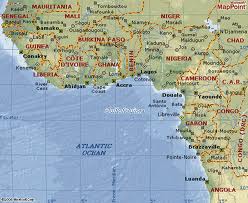 DAKAR May 3 (Reuters) – A stretch of West Africa’s coast spanning more than a dozen countries, the Gulf of Guinea is a growing source of oil, cocoa and metals to world markets.
DAKAR May 3 (Reuters) – A stretch of West Africa’s coast spanning more than a dozen countries, the Gulf of Guinea is a growing source of oil, cocoa and metals to world markets.
But rising rates of piracy, drug smuggling, and political uncertainty in an area ravaged by civil wars and coups have made it a challenging destination for investors seeking to benefit from the massive resources.
The Gulf of Guinea runs from Guinea on Africa’s northwestern tip to Angola in the south and includes Nigeria, Ghana, Ivory Coast, Democratic Republic of Congo, and Cameroon.

